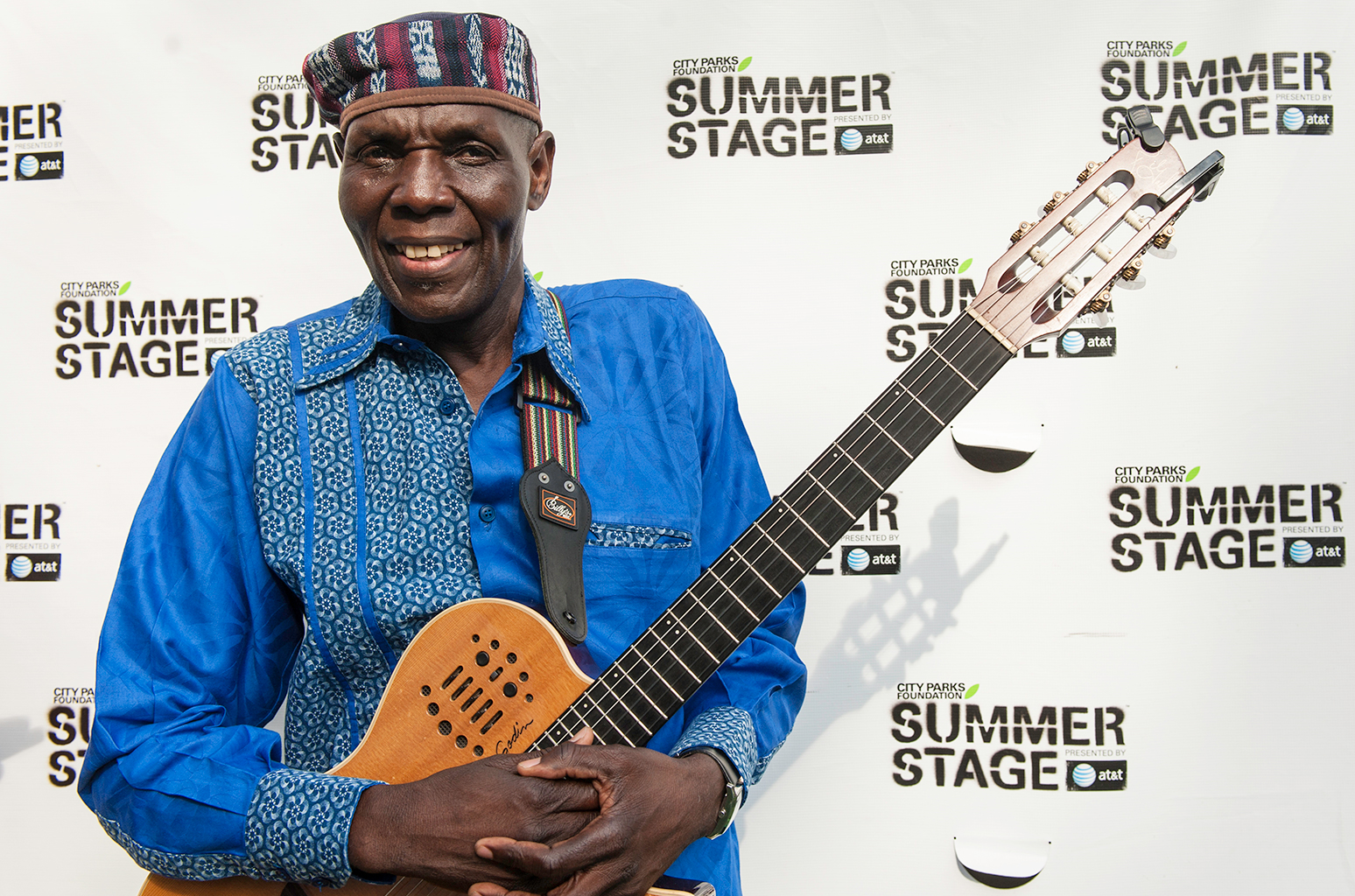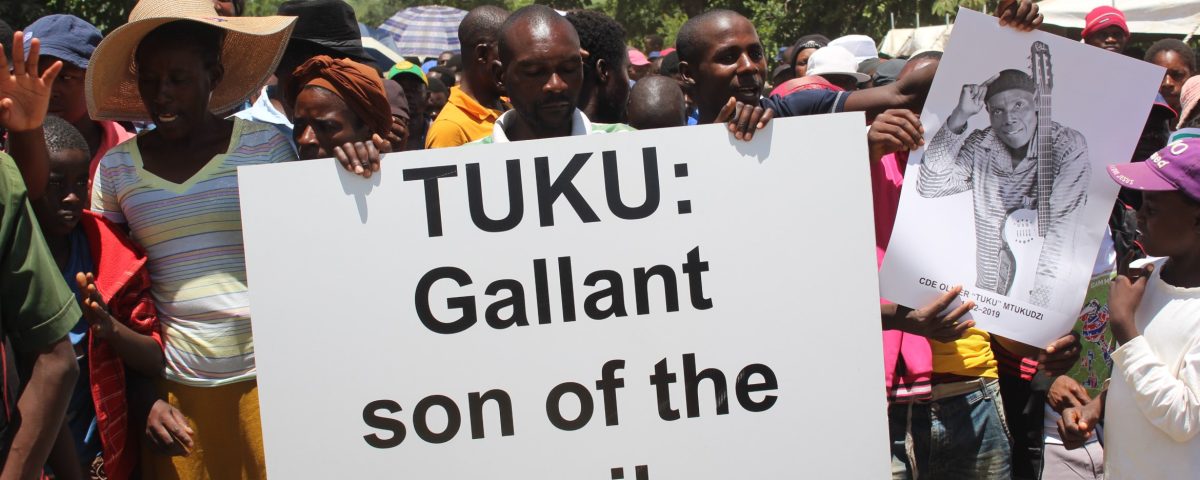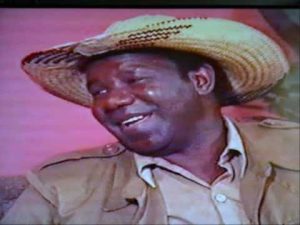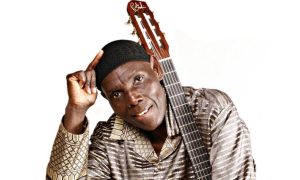
Remembering Samanyanga the last of Zimbabwe’s musical greats
January 25, 2019
Unmasking the history of the Sakubva bus terminus Muonde tree
February 1, 2019Afterthought: The real life lessons from Mtukudzi’s death

The People's hero Dr Oliver 'Tuku' Mtukudzi was greatly honoured and laid to rest on Sunday at his rural home in Madziwa, Shamva after being conferred with national hero status.
Mtukudzi, who died at 66 after a four-decade career with 67 albums to his name broke that barrier in many ways.To begin with he was well off financially. He mixed several different styles in his music and eventually created his own distinctive Afro-jazz sound, which became known as “Tuku Music” and by the time of his death he had many national, regional and international awards to his name, as well as an honorary doctorate in music.Unlike most affluent people of his stature, Tuku had also plausibly invested in his rural home in Madziwa.
…Government must support the arts sector more
Ngoni Dapira
THE mourning is over now, the fashion parades of dhuku’s (doeks) by women and African attires by men, the posting of tribute messages and videos on social media in respect of the granddad of Zimbabwe’s Afro jazz fusion music, Dr Oliver ‘Tuku’ Mtukudzi is now done with.

L-R: The late Dr Oliver Mtukudzi’s daughters (first three) and wife (in red) during the burial service.
Literally, the entire nation in one way or another mourned the veteran musician who was conferred a national hero but was eventually buried on Sunday at his rural home in Madziwa in Shamva in Mashonaland Central. True heroes are indeed born and when they leave this earth they leave behind a permanent mark which cannot go unnoticed, and this best sums up the life of Tuku in Zimbabwe’s music industry and arts sector in general. A lot of national heroes have been buried since 1980, most of them with liberation war credentials, but Tuku’s send off will go down in history for various reasons, chief among them, as a timely pacifier for Government that was struggling to bring back normalcy to the nation after an almost week long stay away with intermittent internet shutdown.
A tense political atmosphere had gripped the nation following a dark week of protests and stay away calls, which ran from January 14 to 17, but all that was immediately put at halt in the split of a second after news of the super stars death broke out last week Wednesday. Focus straight away shifted on social media, as people stopped posting politics and started sending condolence messages and special tributes to the legend. Even tempers of politicians from the ruling party and opposition suddenly cooled off and the only news worth talking about became Mtukudzi. But obviously, the biggest beneficiary to this was Government which was struggling to calm down the tempers of civil servants and the nation at large and instill confidence in its fallback measures to address the macro-economic challenges being faced in the country.
Tuku must indeed be smiling in his grave to see his lifetime work as an artiste wielding so much impact in the lives of Zimbabweans. What he achieved as a musician from humble beginnings becoming a powerful music icon not only in Zimbabwe but across the African continent should actually motivate Government as an afterthought on how the local arts sector needs to be promoted more. Even a lesson to all parents was clearly beamed from the life of the legend, which was for them to be more encouraging of their children’s artistic talents, as one never knows who might rise to fame to become the next Tuku.
SaManyanga as some preferred to call him by his totem, wrote a song titled ‘Andinzwi’ or Hero, which attests his brilliance as a song writer, especially present-day, as the song spoke prophetically, asking some mind boggling questions on what constitutes one to be a hero? In the soulful song, Tuku asked what was considered to confer one a national hero, as he personally declared that the late famous musician and actor, Safirio Madzikatire, who was popularly known as Mukadota, was worthy to have been one.

The cascade of the late Zimbabwean Afro jazz maestro Tuku.
“Can anybody give an answer to my question, here? What is a hero?…Do you have to die to be a hero, here?” Tuku quizzes in the song. “To me, Safirio Madzikatire a hero, our national hero. As, I remember some of his lyrics in his plays, Andinzwi…That’s a hero, what a hero Mukadota…”
Safirio became well known for his music and acting in the television soap, the Mukadota Family. He starred on radio and television under the Mukadota name alongside his long-time creative partner, Susan Chenjerai, between 1964 and 1987. They also toured and produced popular musical comedy records, including the single “Katarina”, which was a big hit in 1983.

Safirio Madzikatire
He passed away in 1996.After his death, Safirio was considered to be a cultural icon in Zimbabwe, in 2003, the National Arts Council of Zimbabwe during its Nama awards, honoured him by awarding him posthumously with an Arts Service Award for lifetime achievement and in earlier years a primary school in Harare was named after him.
Mtukudzi became the first Zimbabwean artiste to be conferred with national hero status. Since independence in 1980, Zimbabwe has lost many renowned artistes that put his country in the limelight through their musical talents, these include Leonard Dembo, Paul Phiri, Biggie Tembo, John Nyathi, Andrew Chakanyuka, Jethro Shasha, Solomon Skuza, William Mhlanga, Crispen Matema, James Chimombe, John Chibadura, Jonah Sithole, Susan Mapfumo, Brian Sibalo, Freedom Sengwayo, Jackie Madondo, Simon Chimbetu, Joe Masters, Cephas Mashakada, Andy Brown, Fortune Muparutsa, Stobart Chidikano, Tongai Moyo, Hilton Mambo and Prince Tendai Mupfurutsa are some of the few artistes.
There are hundreds of other musicians who have died but remain obscure as they were regarded as ‘backstage’ artistes, whilst most prominent ones died poor with just their hit songs to keep their legacy.

Oliver Mtukudzi
Mtukudzi, who died at 66 after a four-decade career with 67 albums to his name broke that barrier in many ways.To begin with he was well off financially. He mixed several different styles in his music and eventually created his own distinctive Afro-jazz sound, which became known as “Tuku Music” and by the time of his death he had many national, regional and international awards to his name, as well as an honorary doctorate in music. Unlike most affluent people of his stature, Tuku had also plausibly invested in his rural home in Madziwa.
Mtukudzi was rated by Forbes magazine as one of Africa’s 10 most bankable artists and some experts ranked him alongside Senegal’s Salif Keita and Youssou N’Dour for his innovation and influence.


